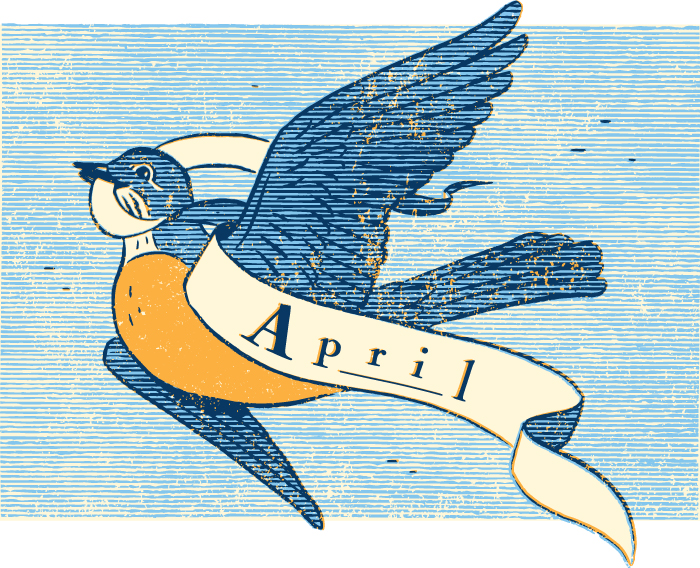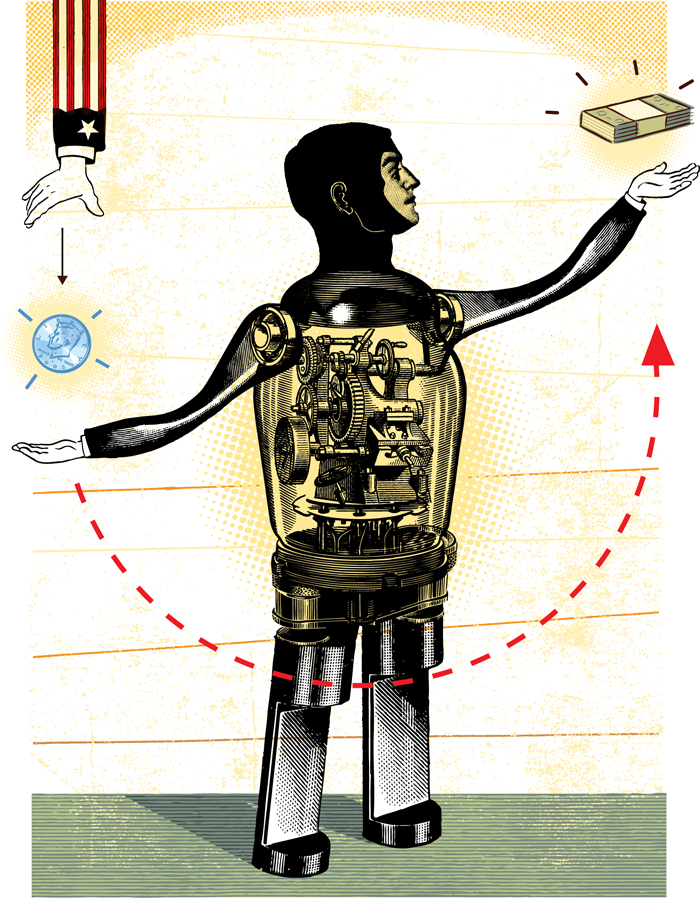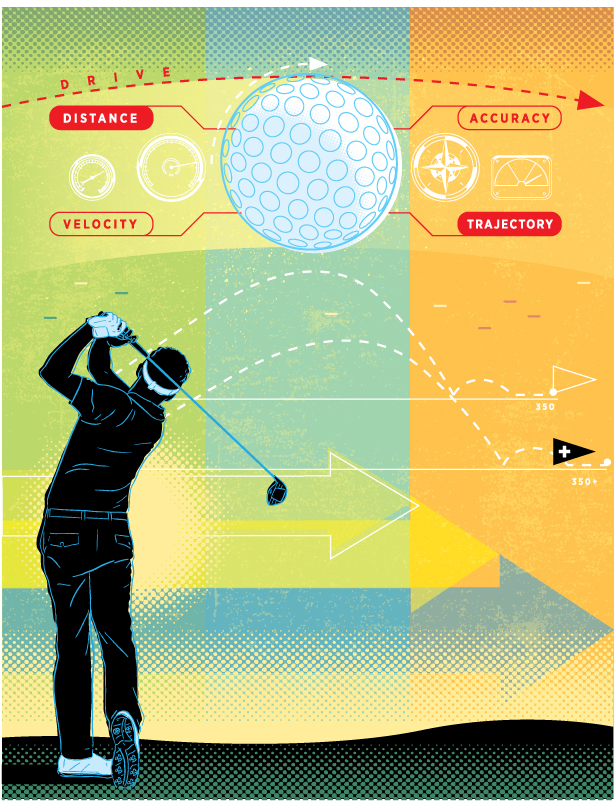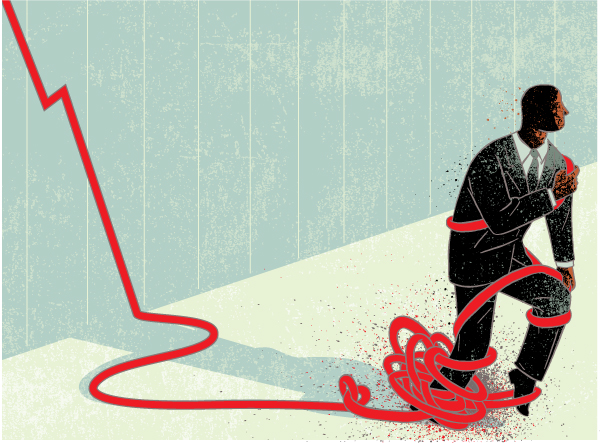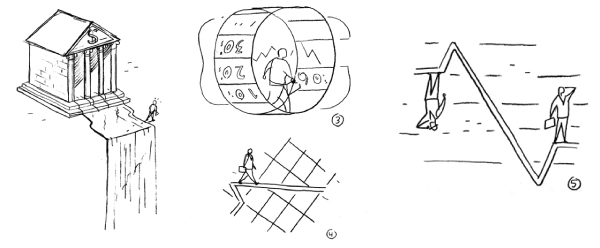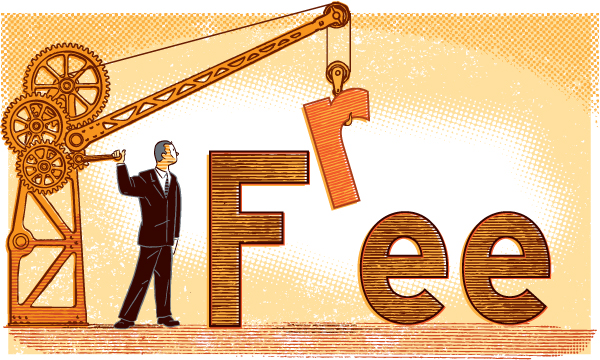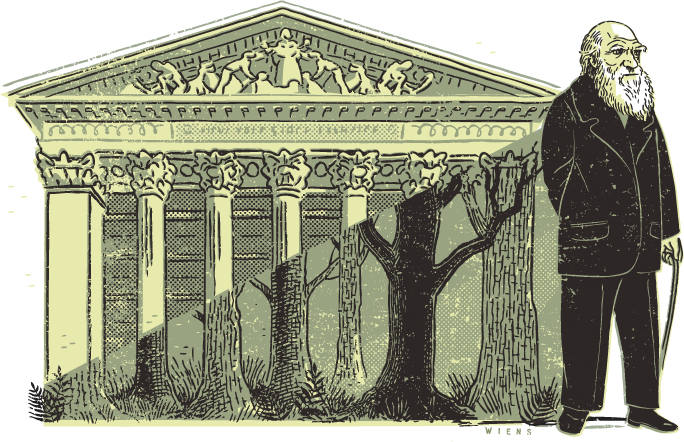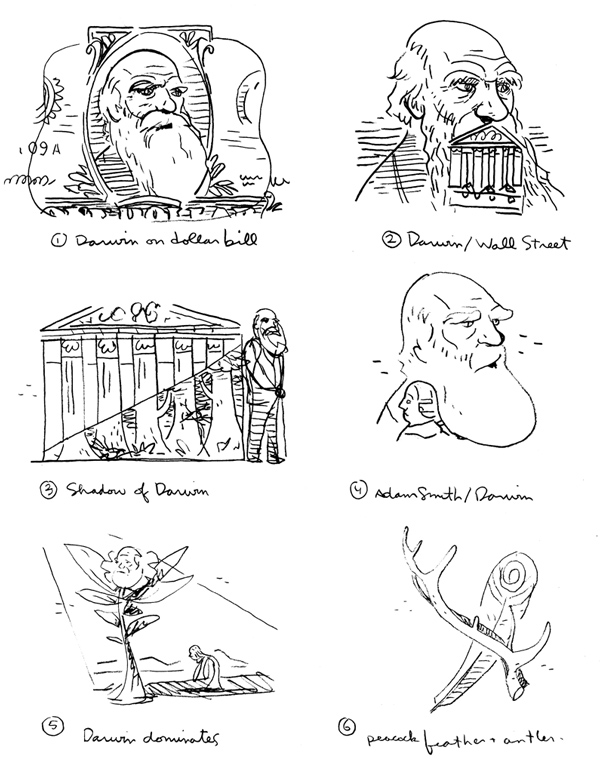Romney, Obama, the Economy and You
 Tuesday, October 9, 2012 at 2:49AM | Published in
Tuesday, October 9, 2012 at 2:49AM | Published in  Assignment work,
Assignment work,  Carl Wiens Illustration | Comments Off
Carl Wiens Illustration | Comments Off Election season is in full swing, a see-saw and 'bump' battle, ultimately resting on a few undecided voters in several key states. The dominant, opening agenda in the first Presidential debate was the Economy. Romney showed some spark after being on the ropes for the past month or two. Obama didn't counter with an effective argument, looking tired and listless. Advantage Romney. Return to the see-saw status.
In the weeks and months (and years) leading up to the big vote, I have been working with art director Minh Uong on a series of illustrations for the Economic View column of the weekend New York Times. I took a look back at them and most of the topics hold relevance today, affecting the policies in play and the decisions that will have to be made by the winning candidate.
There have been some rather weighty topics in the mix. Sometimes this can present an obvious visual solution, other times it takes a more nuanced approach, with a lot of back-and-forth, discussions over the phone and numerous tries to find the right balance. Minh is always great to work with.
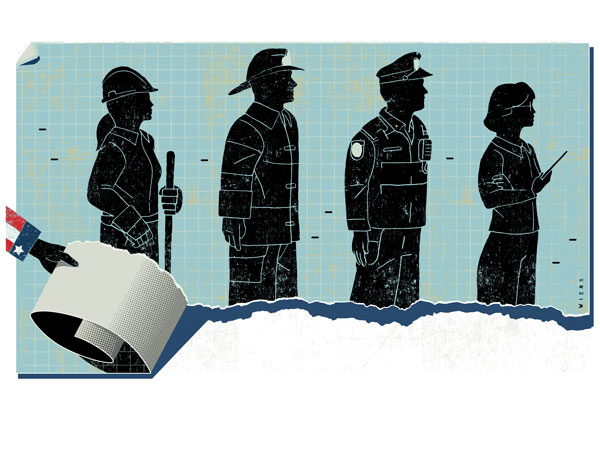
I worked on this piece, for an article by Robert J. Schiller, 'Framing' Prevents Needed Stimulus. Laying off public employess in large numbers undercuts economic growth. Losing hundreds of thousands of public-sector employees to budget cuts has impacted the pace of the recovery.
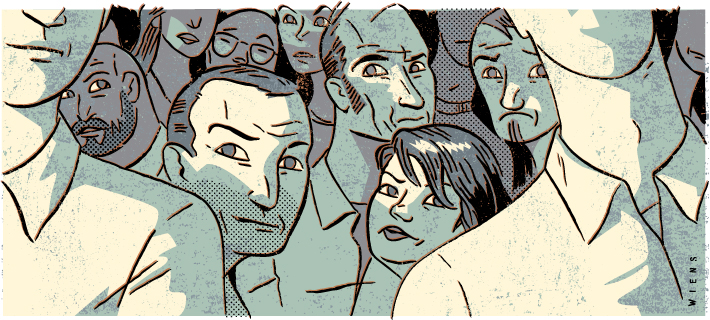
Romney's 47%. OK, not really, but there is a huge discontented rabble out there and a lot of suffering. You can read the article 'Reviving Real Estate Requires Collective Action' by Robert J. Schiller here.
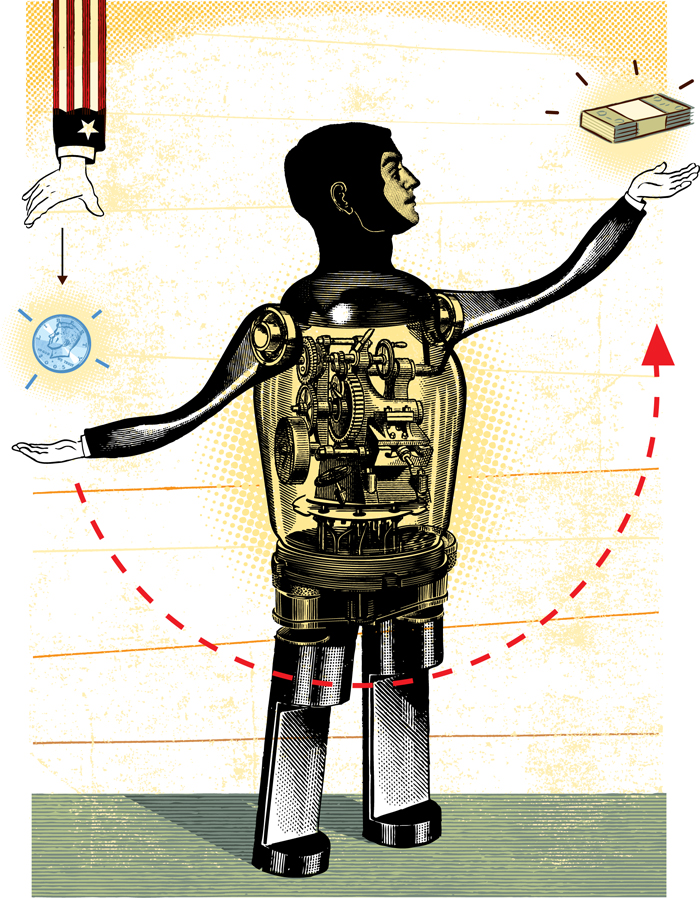
Romney presents the case that cutting taxes increases government revenue. This myth gets serious scrutiny in an article by Christina D. Romer. 'That Wishful Thinking About Tax Rates'.
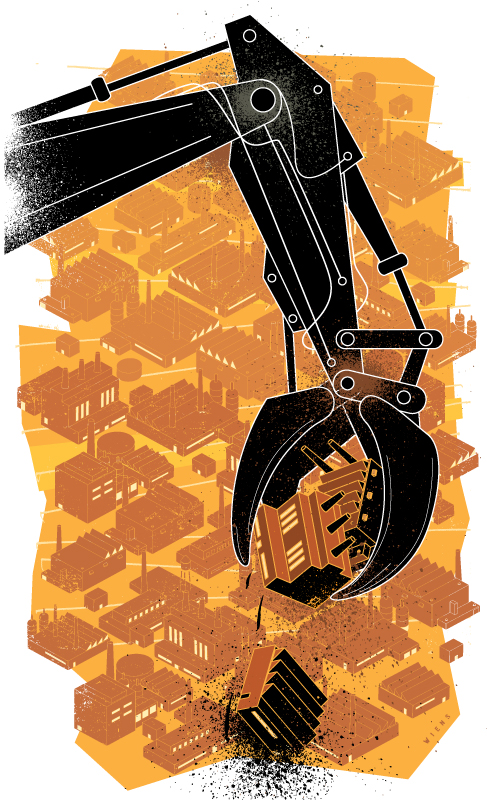
Private equity has been squeezing profits from various corporations. What are the repercussions? Marc J. Leder is the head of Sun Capital, the company that Mitt Romney founded. He is also the campaign manager of Mitt Romney's presidential run. If elected, who will get the squeeze?
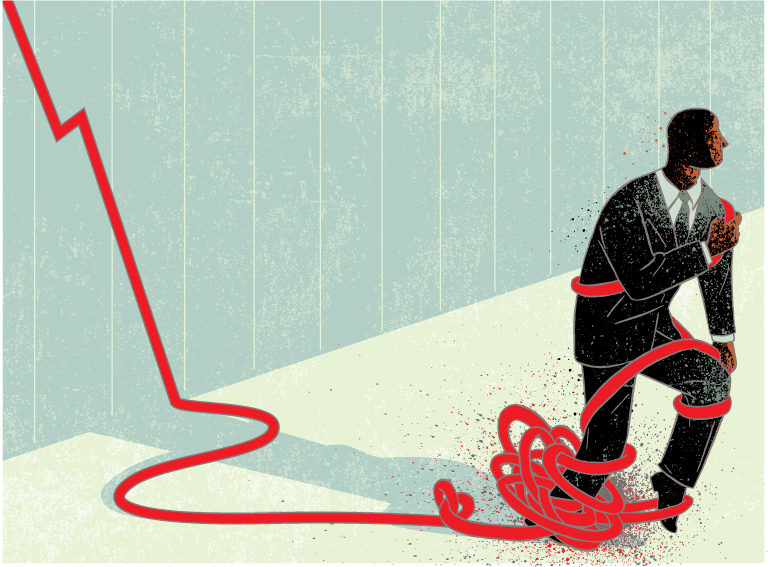
From Obama's side of the debate. Emerging from an financial crisis can be complicated and take a long time. For the article 'A Financial Crisis Needn't be a Noose' by Christina D. Romer.
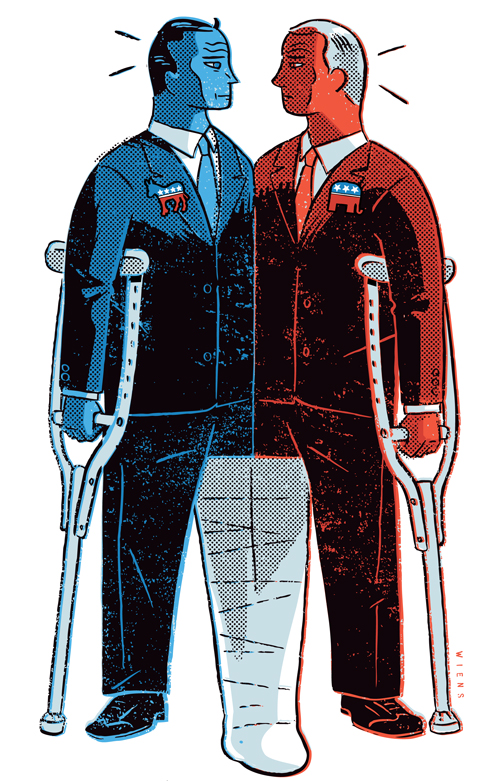
And finally, medicare. Both parties may have more in common than their stances suggest.
Be sure to get out and vote!
 Economy,
Economy,  Election,
Election,  New York Times,
New York Times,  Obama,
Obama,  Romney
Romney 
